Welcome to the week! Before we get much further into the news and views and issues, here’s a roundup the most notable items our editors and readers came across in the past seven days…
Theyyyy’rrre baaaack: Our friend Doug Gordon (Brooklyn Spoke, War on Cars) lays out the situation many cities find themselves in as car use and traffic comes roaring back after the pandemic, and why there’s still hope to stem the tide.
Business pushback: A new policy in Denver, Colorado aimed at a return to post-pandemic work commutes would have required large employers to discourage car use and come up with a plan to incentivize other modes. That is, until it was killed by business owners.
E-bike rebates: There’s now a Senate version of the E-BIKE Act, which would give people a tax credit for 30% of the cost of a new electric bike. A House version of the bill was introduced back in February.
Berlin bikenomics: A study of German shoppers and business owners found that (similar to a study in the U.S. we covered in 2012) businesses overestimated the amount of their customers who arrived by car.
Why we still widen freeways: “The entire government is wrapped around freeway construction… So just knowing that freeway widening is pointless and destructive isn’t enough,” reports Streetsblog SF, in this solid article on the politics of freeway widening.
Advertisement
Dangerous road recipe: Streetsblog has the details on new research about the most dangerous roads in America for people on foot. The top offenders tend to have four or more lanes, 30 mph an hour or more speed limit, and lots of destinations.
Low-car Boston: This piece from Boston Magazine offers a useful overview of what it takes for a major city to move toward a low-car future. Portlanders should take notes.
Not an “accident”: A high-profile NFL coach was on a bike ride and died after he was hit from behind by a car driver. Unfortunately the tragedy was widely reported as a a “bike accident”.
Eat in the streets: “Outdoor dining, starting as a pandemic lifeline, has gone from a seasonal attraction to an urban essential,” says renown expert and urban planner Janette Sadik-Khan in a new op-ed.
Transportation talks: As negotiations over a major transportation funding bill continues, a major disagreement between Democrats and Republicans is how much to spend on transit versus highways.
Olympic bike racing: Two unlikely winners took home road racing gold medals in Tokyo: Richard Carapaz of Ecuador won the men’s race and relative unknown Anna Kiesenhofer of Austria won the strange and amazing women’s race.
Thanks to everyone who sent in links this week!
— Jonathan Maus: (503) 706-8804, @jonathan_maus on Twitter and jonathan@bikeportland.org
— Get our headlines delivered to your inbox.
— Support this independent community media outlet with a one-time contribution or monthly subscription.



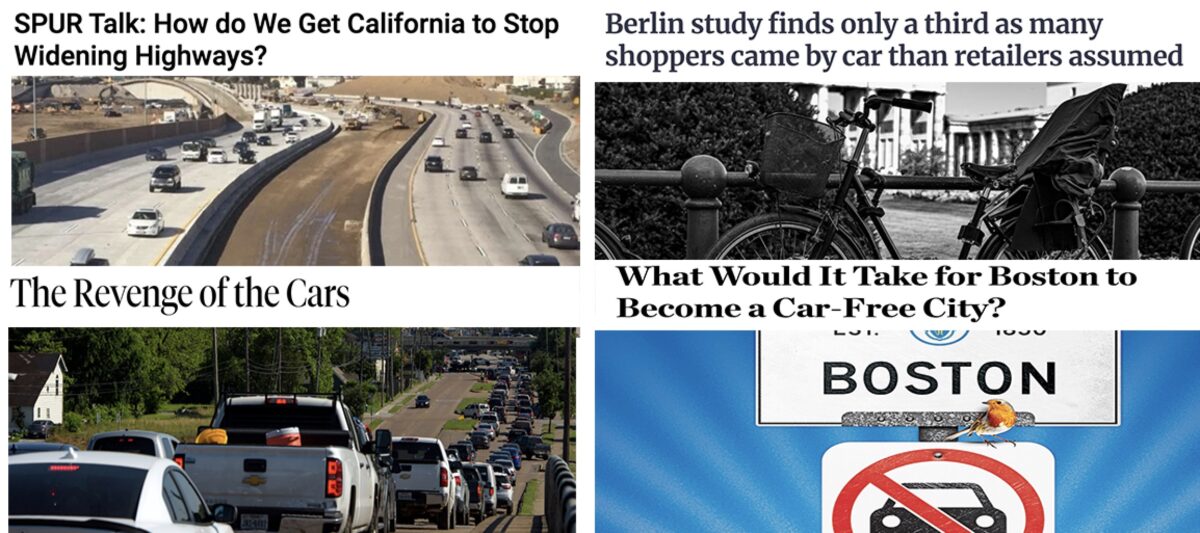
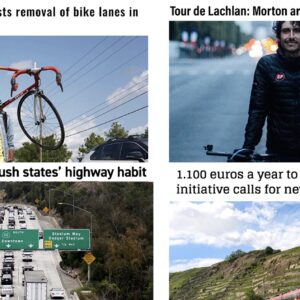
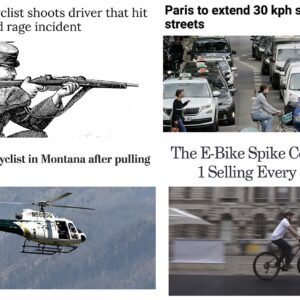
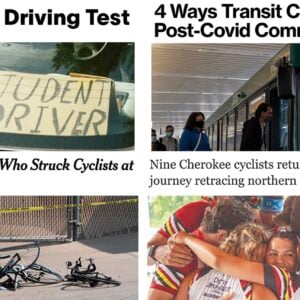
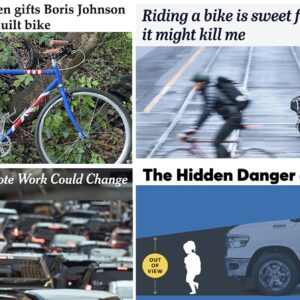
Thanks for reading.
BikePortland has served this community with independent community journalism since 2005. We rely on subscriptions from readers like you to survive. Your financial support is vital in keeping this valuable resource alive and well.
Please subscribe today to strengthen and expand our work.
Bikes and their components are already scarce without tax credits. As of now, the only people I see benefiting will be suppliers and retailers.
Carapaz isn’t much of a surprise. I’m happy for Ecuador, but maybe not his trade team sponsored by petrochemical and automotive concerns.
Re: “Bikes and their components are already scarce without tax credits.”
That is a short-term problem due to COVID and supply chain issues.
The industry will be able to increase supply if there is evidence that this is a sustained increase in demand, not just a short-term boom to be followed by a bust. When we think about 2022 and 2023, a 30% tax credit could be a big boost for e-bikes.
I’ve yet to read anything suggesting that the supply chain will recover and have any slack in that timeframe. The credit would go straight into inflation.
That’s largely correct when supply is inelastic, which is definitely the case right now.
The hard-hitting journalists at Boston Magazine have concluded that for Boston to break into a low-car future, “We simply have to build better.” There’s really not much more to the article than that… (well that and fix the MBTA, the seemingly impossible task Boston has struggled with and largely failed to do for decades).
Boston is a relatively compact city (much smaller than Portland and is only a tiny part of the metro area), but is cursed with a street grid literally laid out by cows. Cars are definitely a problem, but I think the only hope is automation by fleet vehicle companies. Too many people live in the suburbs and the MBTA will never be able to serve them. And the post-covid future of traditional transit anywhere seems pretty grim.
Good luck, Boston!
During the “Spanish” flu, there was a 3-year lag before transit ridership returned to pre-1918 levels. We’ve gone 18 months so far, so we still have another 18 months to ridership recovery. I Figure between the increased congestion, global warming, and Russian hackers next targeting owners car navigation and keyless doors for ransom, we’ll get those numbers back up in no time.
Two ecocidal parties but one of them is more hypocritical.
I don’t drive very much, but I know I’d drive even less with an ebike. I’m having a hard time justifying the cost. The ebike credit would do it.